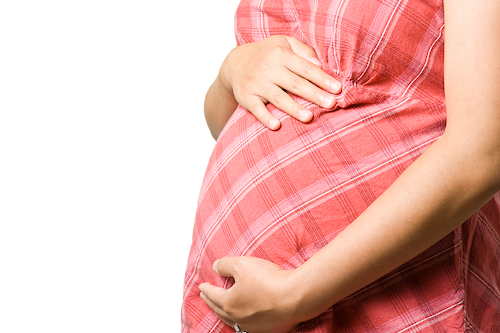 Women experience a large variation in perceptions of their own body during pregnancy.
Women experience a large variation in perceptions of their own body during pregnancy.
Research published in BMC Pregnancy and Childbirth found that average levels of body image dissatisfaction was similar in pregnant and non-pregnant, but there were significant differences between individuals.
“We found that some women feel happier with their body's appearance when they're pregnant, others feel more negative and for others pregnancy doesn't notably affect their body image satisfaction. This is most likely determined by individual factors, such as mental health, BMI and stage of pregnancy, although many studies don't investigate important factors like this,” Anna Crossland, lead author of the study and a PhD student at University of York told Theravive.
“Whether the woman already has children does seem to affect body image satisfaction, with women who already have children reporting lower body image satisfaction than women experiencing their first pregnancy. There may also be a stronger link between mental health and body image dissatisfaction during pregnancy than when women are not pregnant.”
The researchers conducted a meta-analysis of studies, initially screening 2017 studies before focusing in on 17 studies.
The analysis included 5200 responses from pregnant women and 4172 responses from women who weren’t pregnant.
“It's widely understood that how satisfied we are with our body's appearance has a big impact on our wellbeing. This is important throughout our lives, but possibly even more so in times of great bodily change, such as pregnancy. As pregnancy is a time when the body deviates from what society considers the ideal shape and weight, and attitudes towards the body may change to being driven by body function, we wanted to understand how pregnancy might impact how satisfied women are with how their body looks compared with when they're not pregnant,” Crossland said.
They concluded that overall, the body image dissatisfaction of women was not statistically different in pregnancy compared with not being pregnant.
For some, pregnancy may worsen body dissatisfaction due to weight gain. Some reported feeling that their body was out of their control.
Some women who were pregnant reported an improvement in their body image compared with when they were not pregnant, as they no longer felt they needed to compare their body to a thin body type.
“Many women feel societal pressure to strive to be slim, and during pregnancy being slim is taken out of the equation because of inevitable changes like the baby bump growing, so they may feel more confident about their body shape because they don't have the pressure to be slim as there is a clear reason for not having a flat stomach. They may also focus more on the function of their body rather than how it looks and therefore again feel liberated from societal pressure to look slim,” Crossland said.
She argues that it is crucial to understand the causes underlying body dissatisfaction in pregnant women, as this dissatisfaction can have a notable impact on the mental and physical health of both the mother and the baby.
Women who report body image dissatisfaction during their pregnancy may also show signs of depression and anxiety postnatally and over the long term. This can lead to negative behavioral outcomes for the mother’s child and lower quality mother-infant interactions.
“There can sometimes be some taboo about talking about the mothers own body during pregnancy but it is important to acknowledge the crucial role that body image satisfaction can play in the wellbeing of the mother and therefore the baby. We also suggest that asking how women feel is better than commenting on appearance both in general but also particularly during pregnancy. Even if you want to say something positive, simply mentioning appearance draws their attention to their body, which may not be a positive experience for them,” Crossland said.
“Every pregnant woman's experience of pregnancy, and of their body during pregnancy, is different, and their body is important in its own right as well as being a home to grow the baby. Although as a society we may assume pregnancy is a positive experience, it isn't for some people so we can’t assume how people are feeling.”
Elizabeth Pratt is a medical journalist and producer. Her work has appeared on Healthline, The Huffington Post, Fox News, The Australian Broadcasting Corporation, The Sydney Morning Herald, News.com.au, Escape, The Cusp and Skyscanner. You can read more of her articles here. Or learn more about Elizabeth and contact her via her LinkedIn and Twitter profiles.